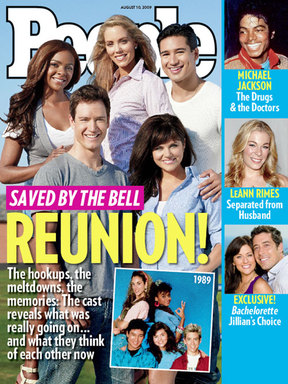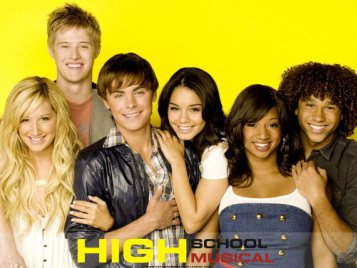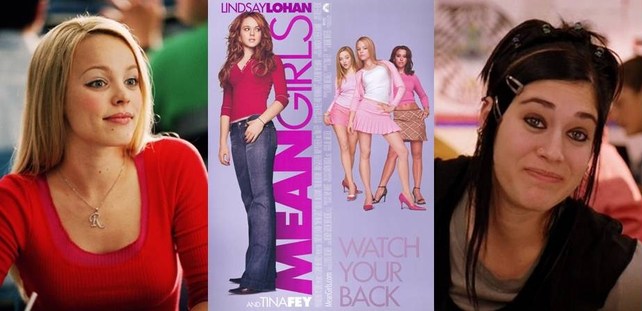 If only I had their HS experience...
If only I had their HS experience... When I got home from dinner and checked my Facebook, my newsfeed was filled with pictures from the reunion party and plenty of “good to see everyone, let’s do this again soon” updates. As I came across some of the faces of those who made my adolescence something I’d rather forget, I was relieved I hadn’t changed my mind and showed up. Then the strangest thing happened. I suddenly felt this brush of anxiety and discomfort. It was the same feeling I experienced every time I’d see a former bully (either from middle or high school) or even entered a school. It’s a feeling that, when it hits me in public, I become instantly introverted, quiet, socially unsure, insecure and paranoid: I revert back to the teenager I once was. The best example of this was my first day of tutoring at a city high school when I was a graduate student. Walking down an empty hallway, I giddily rehearsed my “professional face;” I was actually kind of excited to start the new job. However, my excitement turned to fear when the bell rung and a bustling herd of students swarmed around me. My heart-rate elevated, I avoided looking anyone in the face and I started to worry if my pupils would like me or not. Why was I scared of them? I wasn’t in the position of a peer, I was an authority figure. It was never so lucid that my social school experience traumatized me.
I feel nervous as I I’m typing this now; I’m trying to fight the memories from flooding in. I don’t want to recall all the specific moments of humiliation, denigration, rejection, unwarranted intentional cruelty and psychological warfare that was so inescapable. I couldn’t even immediately trust those who tried to be kind to me because there were so many pranks and ambushes at my expense. What did I do to deserve any of it? According to some kids, it was because I “was too happy” or “too nice.” In trying to get their teen to relax and not be so concerned with appearances, I’ve often heard parents say “no one is paying that much attention to you,” but the truth is that they are and any single thing could be used as a ration to harass your child. People nitpicked at the jewelry I wore, my hair, my clothes, even the shape of my lips. Guys overlooked me because I was so tragically uncool, but I was accused of being a lesbian because I didn’t have a boyfriend (not that there’s anything wrong with being a lesbian; kids use sexuality as a pick point too). You come home bawling your eyes out to your parents, trying figure out “why you?” but there’s no real answer, they just hate you. You bend over backwards trying to turn yourself into whoever they want you to be, but they mock your efforts. People tell you to stand up for yourself or fight back, but no amount of verbal taunts or fists thrown (especially if you’re not good at comebacks or fighting) satisfy what you really want: for it to stop. Your parents and school administrators (sometimes the staff gives a darn) want to help, but they can only do so much. Once the realization comes that there’s nothing you can do to fix it, the overwhelming sense of defeat, powerlessness and helplessness nearly breaks you. That feeling is part of what leads so many of today’s bullying victims to violence and/or suicide.
Some try to encourage students by saying, “Stay strong. It’s just 4 years; it will go by quickly,” but that’s a lifetime when you’re bracing yourself for 8 hours a day, 5 days a week for 4 years. The torment exceeds that time-frame with this generation, as bullies can now continue abuse online with social media. Given that most social media enables people to connect with others all over the world, youth can be terrorized or baited by people they haven’t even met in person (I write more about cyber-bullying amongst kids and adults in “Social Media Demons.”)
Removing the dominion and control my adolescent memories have over my conscious and emotions has been a work in progress as I have new epiphanies about how the past has affected me over time. It can be difficult to unpack and release the past as a bullying victim because it seems there isn’t much of a way to address it. You graduate; that’s it. The perpetrators leave with little-to-no consequence or remorse, while you leave scathed. You can go on to have a rather great life, but you won’t be able to tell the story of your existence without having to tread those embarrassing, hurtful and uncomfortable chapters; those inalterable and undeletable chapters. That’s why some people go to reunions solely for bragging: to revise history. By rubbing it in the face of a bully how awesome their life is, people feel that they’ve finally gained justice for themselves and changed how the story ended.
You would think talking about your experience with others would help healing, but I’ve found that unless you’re speaking with a therapist, your sharing might be in vain. Some people I went to school with either forgot it occurred, denied or rationalized it (1 person argued I brought the bullying on myself because I kept trying to fit in). All of these invalidating reactions enraged me. How is it we make it to adulthood and still feel so nonchalant about bullying? Others who weren’t school-mates gave me the old “don’t hold a grudge, people change, get over it” bit. 1) Yes, some people do change, but I’m not going to care much about the 2013 edition of my bullies because I didn’t and don’t benefit from their personal changes. 2) Simply remembering what’s happened to me is not holding a grudge. Laughing at my bullies’ misfortunes, doing voodoo to curse them or praying for their demise would more so fall under “holding a grudge.” 3) I despise when people say “get over it” in any situation. It’s negating and insensitive. It’s still quite regular to respond cavalierly to bullying accounts, even to celebrities. I heard someone accuse Lady Gaga of over-reacting, if not exaggerating, about her experience with being terrorized in school. The only people that sympathized with me at all were those who empathized and had a similar journey. Needless to say, talking about it did only some service for me.
 I much rather go to the Wildcats reunion in 2018....
I much rather go to the Wildcats reunion in 2018.... Freshman year, a student told me one day I’d be on a “geek to chic” high school reunion episode of the “Maury Povich Show” and that it would require contacting all 4 graduating classes from 2000-2003 to gather everyone that hated me. Don’t stand by the phone waiting for a producer to call you. Sorry to disappoint, but 1) I figured out I was pretty by myself, no thanks to you. I might have given anything to get a “thumbs up” from you when I was 14, but I don’t need it now, thanks. 2) You will NOT be receiving a free to trip to New York and an appearance on syndicated TV at my charge and 3) I have 0 desire to see you. If I wanted to see you, I could make less of a spectacle of myself and show up at your reunion.
A friend/classmate said “Are you sure you don’t want to come to the reunion?” I replied “Reunion? Screw that.” She then said “It might help to come. You can confront people about what they did, give them a piece of your mind and leave.” Like I said, I’m content with my decision not to attend, but just in case I later regret not taking an opportunity to speak with a former bully, I have this simple quote from a great Kelly Clarkson song:
“I would never wish bad things, but I don’t wish you well.”
I’m not going to speak well or ill-will; I’ll just let karma do its job.




 RSS Feed
RSS Feed